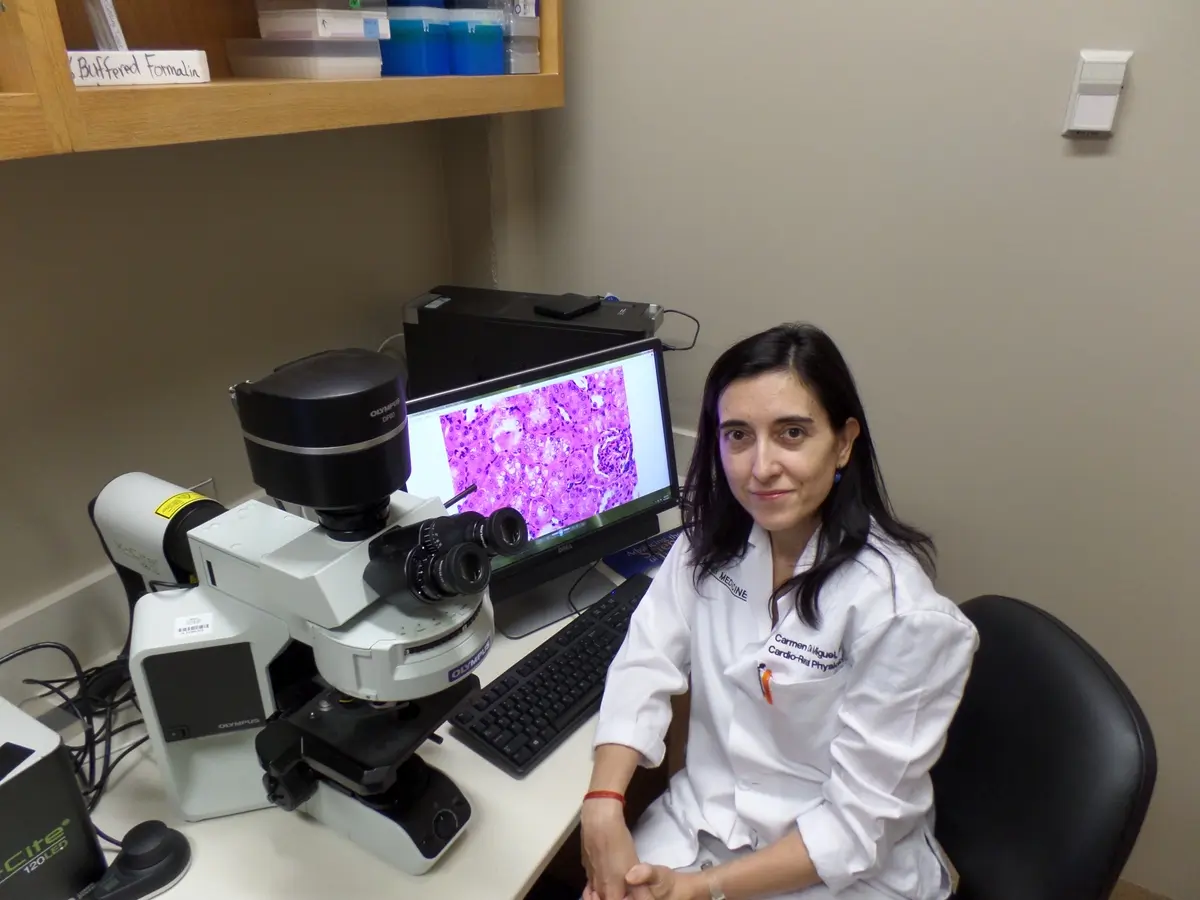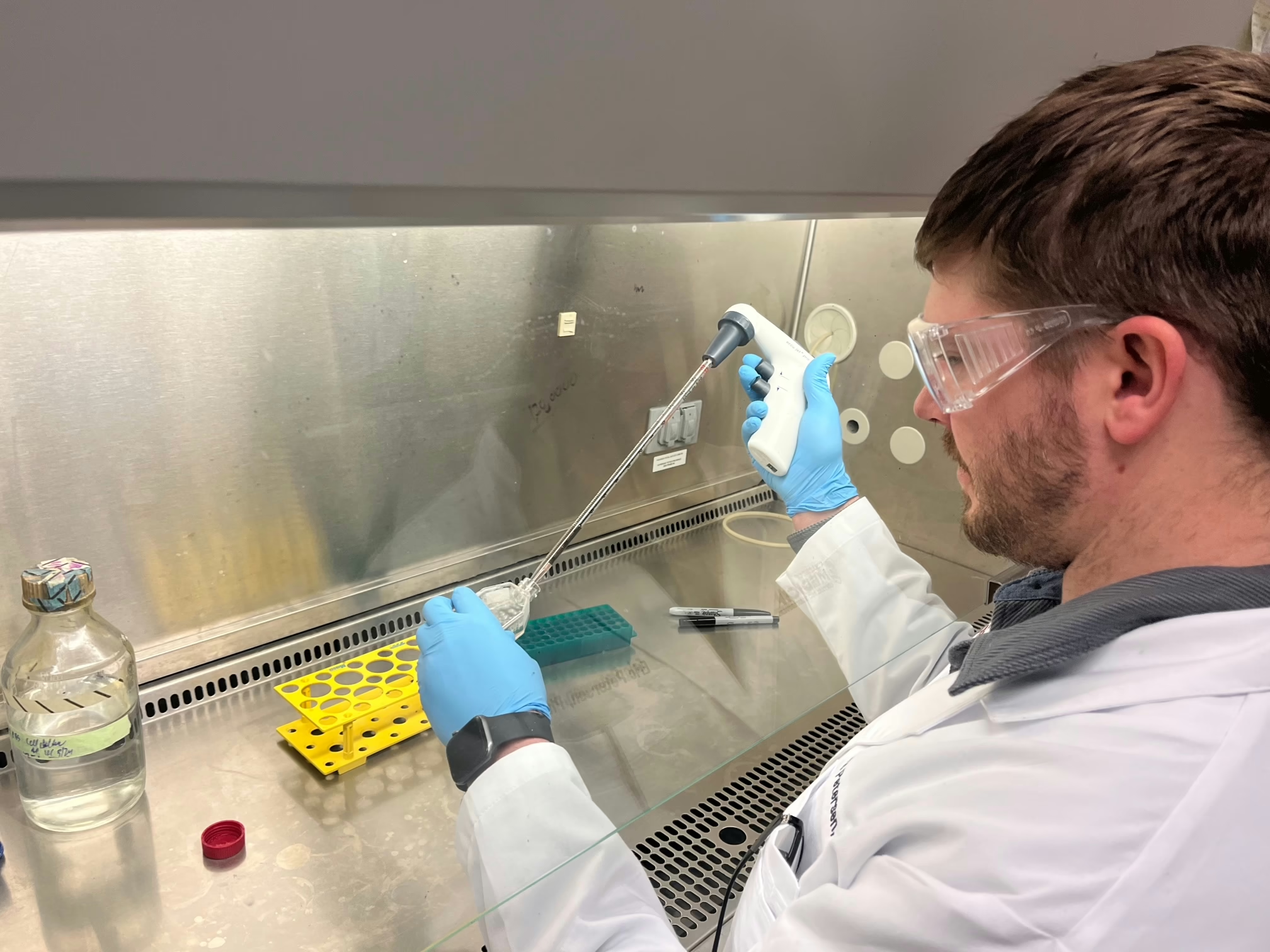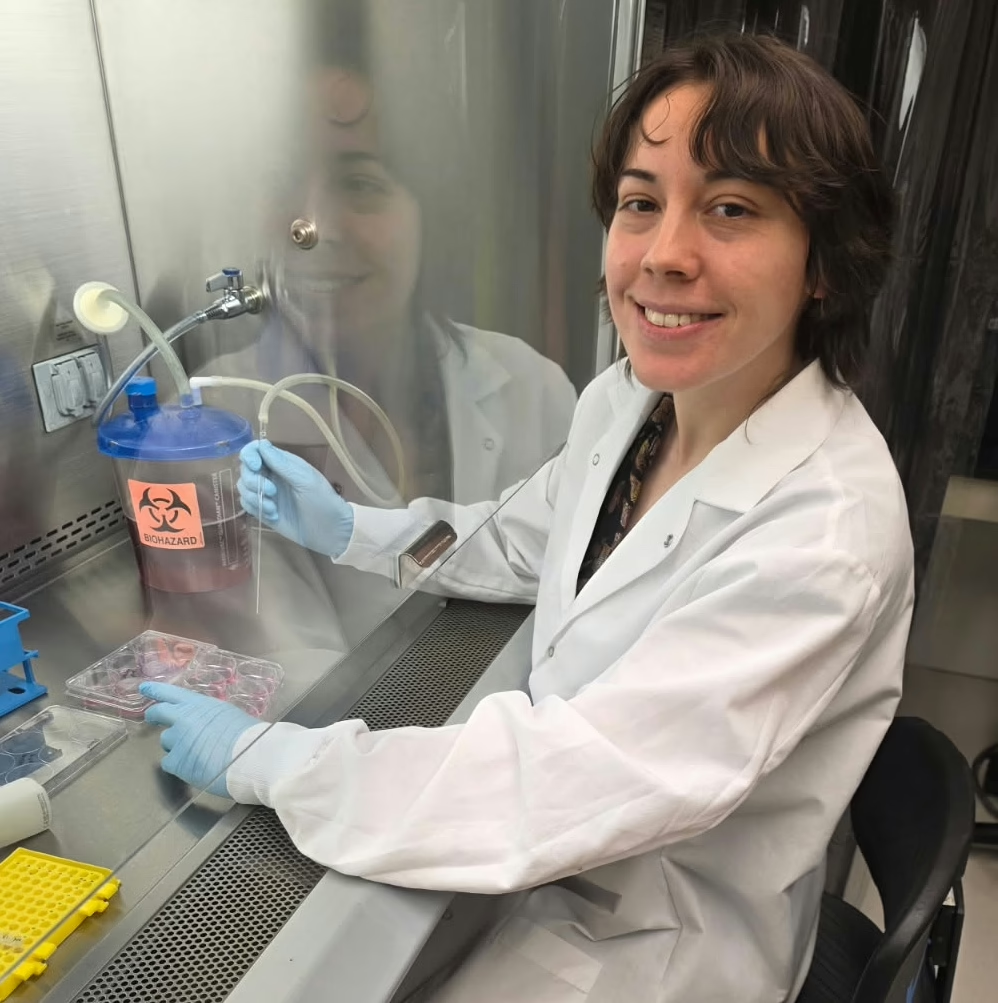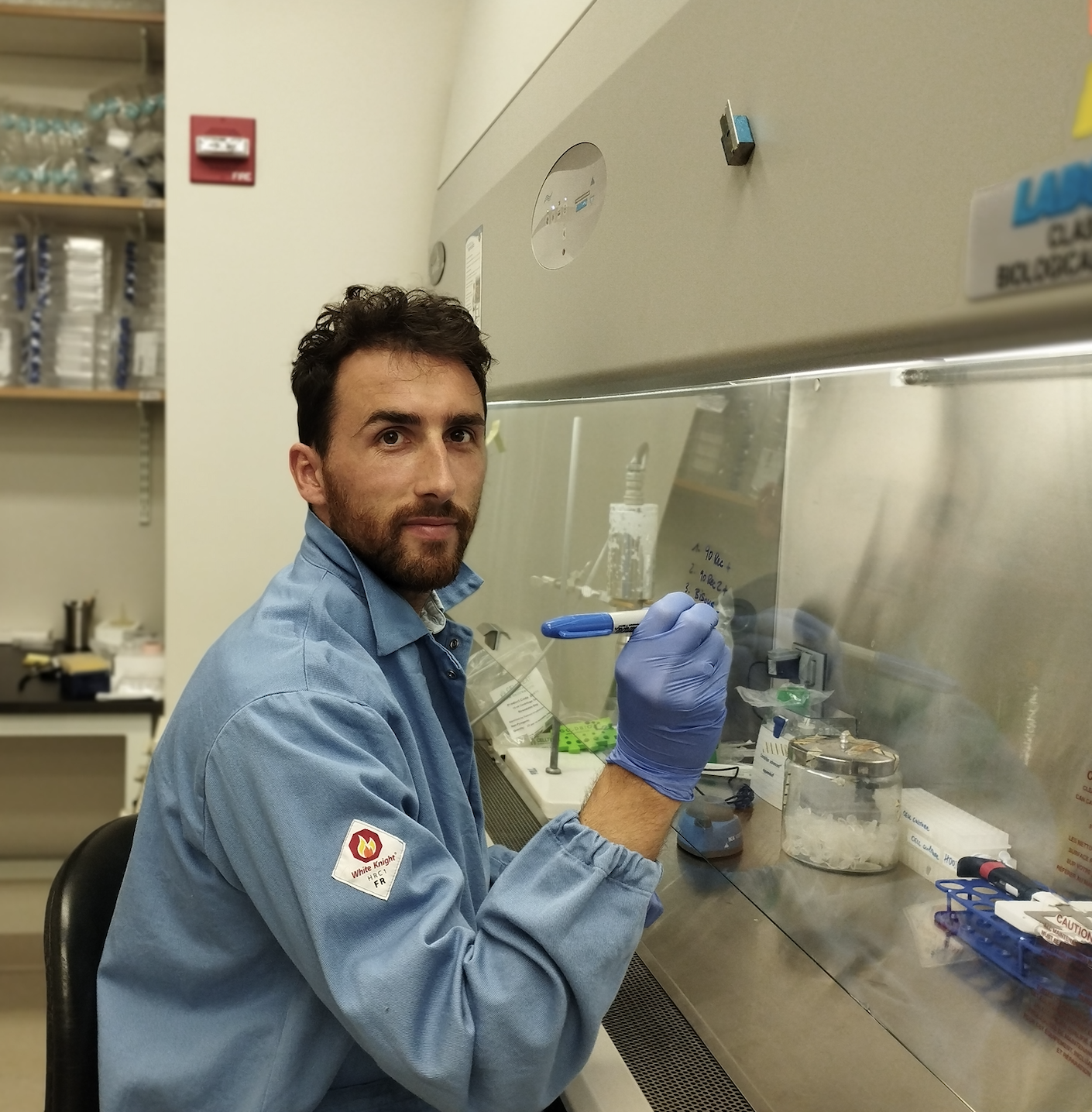6 Month Update
The goal of our pilot project is to identify the role that the G protein-coupled estrogen receptor (GPER) plays in the development and progression of kidney disease during type 1 diabetes. GPER is expressed in many organs in the body, but interestingly, females have almost twice as much expression of this receptor in the kidney compared to males. By using a mouse model that lacks GPER, we aim to determine the role of GPER in kidney disease during type 1 diabetes. We are also interested in determining if GPER plays the same role in diabetic kidney disease in both sexes.
During the last 6 months we have made important progress with this project. We measured the levels of different markers of kidney disease in the urine of male mice after 10 weeks of diabetes. Our preliminary results suggest that, similar to what happens in patients with diabetes, there is an increase of protein in urine with the disease; however, the absence of GPER leads to lower excretion of kidney injury marker-1 (KIM-1) in the urine. These results suggest that GPER mediates damage to the kidney in the male mice, as absence of GPER prevents the damage. Other markers of kidney damage, like NGAL or nephrin were not chemokine that attracts and activates leukocytes. Accordingly, we also found lower numbers of T cells in the kidney of GPER KO mice compared to diabetic control mice. Altogether, these preliminary data suggest that activation of GPER leads to kidney damage and increased inflammation in type 1 diabetes. We are still trying to determine if this is also true in the female kidney during diabetes.
In the next six months, we aim to further characterize the immune landscape systemically and in the kidney of both males and females during diabetes. We will perform flow cytometry studies to determine the populations of immune cells as well as their activation status in diabetic control and GPER KO mice. We will also finish histological staining of kidney tissue in order to quantify the degree of kidney damage present in our experimental animals. In addition, we will also measure if lack of GPER leads to changes to kidney function by measuring glomerular filtration rate in vivo, as well as glomerular permeability to albumin in ex vivo glomeruli.
Project Description
Kidney disease is one of the most common complications of diabetes. Patients with type 1 diabetes often develop signs of kidney malfunction within 5 years from diagnosis, and between 30-40% of these patients develop diabetic kidney disease. Yet, we still do not understand how kidney damage develops and progresses during type 1 diabetes, and this gap in our knowledge critically limits the available treatments for these patients.
Although diabetes affects both men and women, it is not clear if both sexes develop diabetic kidney disease at the same rate, or if the hormone estrogen protects the kidney during diabetes. In this project, we will investigate if a new receptor for estrogen called GPER protects the kidney against damage during type 1 diabetes. GPER stands for G protein-coupled estrogen receptor. GPER is present in both males and females, but females have twice as much of this receptor in the kidney compared to males. With these studies, we will determine if GPER controls kidney function similarly in both sexes during diabetes, and if it provides protection to females against diabetic kidney disease.
With these studies we aim to identify new therapeutic targets to stop or delay the progression of kidney disease during type 1 diabetes, and in this way improve the lives of the many patients that live with kidney complications of type 1 diabetes.











